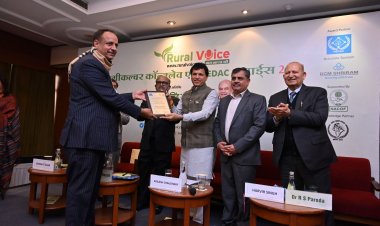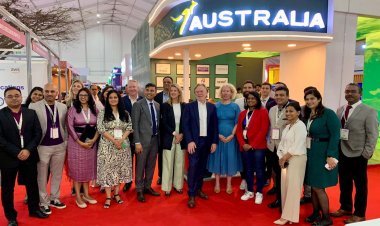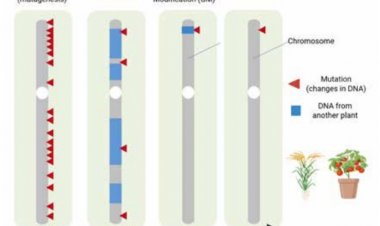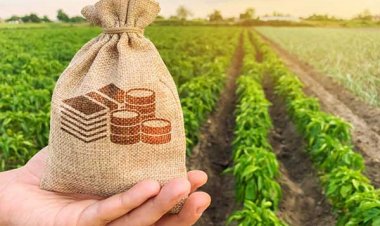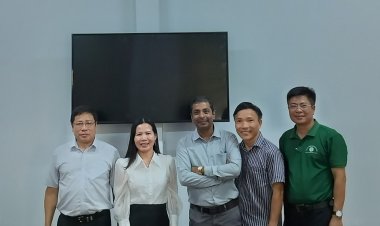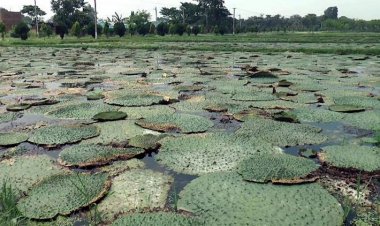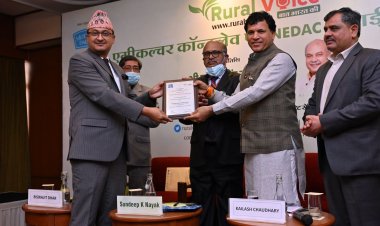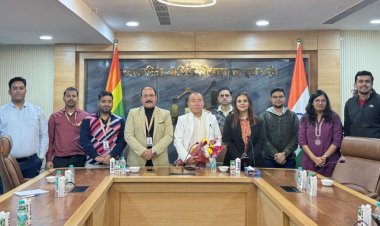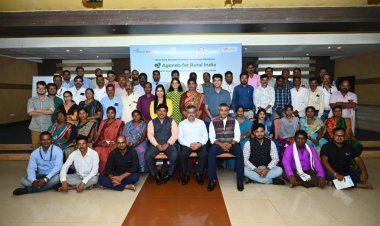Periyapatna V Satheesh: Champion of millets, argo biodiversity, rural women’s rights passes away
The 77-year-old Satheesh, a noted civil society activist, strived hard to promote the cultivation of millets and create awareness about its benefits in rural Telangana, decades ago, when it was not fashionable nor enjoyed government support. He, along with a few friends, founded a non-governmental organisation, DDS, with its headquarters in village Pastapur, near Zaheerabad, about 120 km from Hyderabad in the early 1980’s.
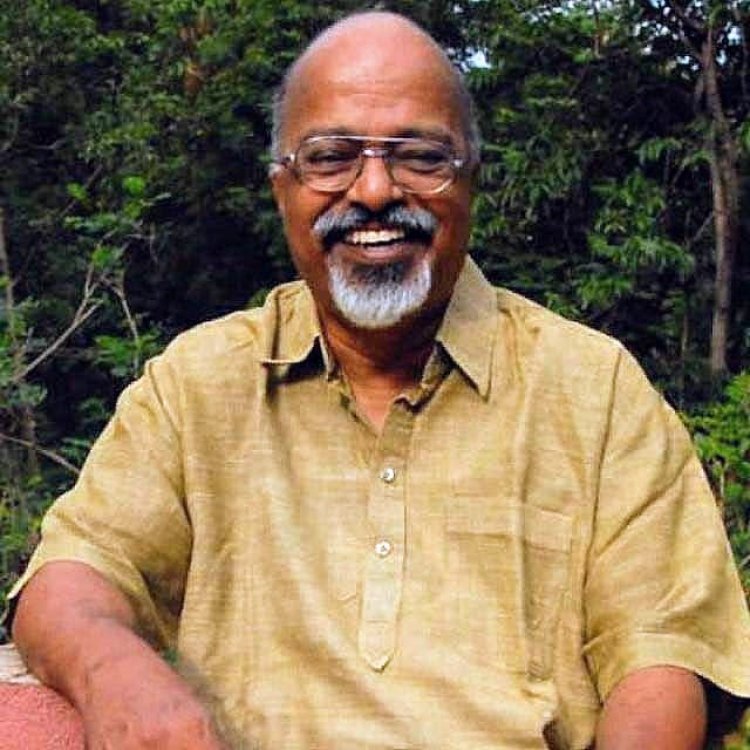
It’s ironic that one of the first champions for promoting millets in the country, PV Satheesh, who founded the Deccan Development Society (DDS), should pass away early in the year which the UN declared as the ‘International Year of Millets’.
The 77-year-old Satheesh, a noted civil society activist, strived hard to promote the cultivation of millets and create awareness about its benefits in rural Telangana, decades ago, when it was not fashionable nor enjoyed government support.
He, along with a few friends, founded a non-governmental organisation, DDS, with its headquarters in village Pastapur, near Zaheerabad, about 120 km from Hyderabad in the early 1980’s. The DDS contributed significantly on issues of agri-biodiversity, food sovereignty, women's empowerment, social justice, local knowledge systems, participatory development, and community media over the decades under his stewardship.
The women's sanghams (associations) of DDS and their steadfast adherence to millet cultivation and organic agriculture led the way nationally in offering demonstrable alternatives to the dominant agricultural paradigm.
The recent efforts to incorporate millets into the public distribution system owes much to the work of DDS under his guidance, said a press release from the NGO, announcing the passing of its Founder and Executive Director, P V Satheesh on Sunday, March 18, after a prolonged illness.
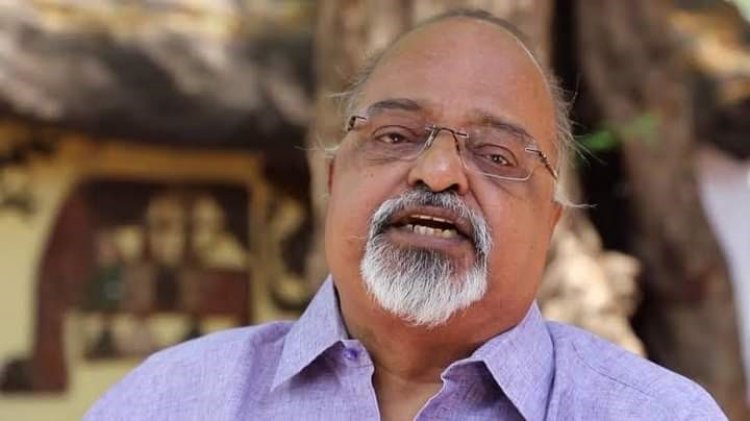
Born on June 18, 1945, in Mysuru, Karnataka, Periyapatna Venkatasubbaiah Satheesh was a graduate from the Indian Institute of Mass Communication, New Delhi and started out as a journalist.
He went on to work as a television producer for nearly two decades for Doordarshan, in New Delhi and then in Hyderabad, making programmes related to rural development and rural literacy in the then-united Andhra Pradesh. He played an important role in the historical Satellite Instructional Television Experiment (SITE) in the 1970s too.
Moved by the plight and challenges faced by the poor and underprivileged sections in the rural areas of the state, Satheesh decided to go beyond his duty and contribute to rural development.
So, in the early 1980s, he, along with a few friends, initiated the Deccan Development Society in the semi-arid Zaheerabad region in Sangareddy district of Telangana. Incidentally, the International Crops Research Institute for Semi Arid Tropics (ICRISAT), established in 1972 is also located in the same district and is working on semi-arid crops.
The initial focus was on collecting poor dalit women in the villages for a range of programmes that together challenged hunger, malnutrition, land degradation, loss of biodiversity, gender injustice, and social deprivation. There was no looking back for him thereafter.
It became a passion, a full-time commitment and Satheesh quit his position and concentrated fully, leading the organisation for nearly four decades to become an internationally acclaimed NGO and an inspiring example that has motivated similar experiments in millet revival and promotion across the country.
As the director of DDS, Satheesh’s long-standing efforts resulted in improving the livelihoods of thousands of poor women across 75 villages in Telangana.
He led several national and international networks like the Millet Network of India (MINI), South Against Genetic Engineering (SAGE), and AP Coalition in Defence of Diversity, and was also the India Coordinator for SANFEC, the South Asian Network for Food, Ecology and Culture, a five-country South Asian network with over 200 ecological groups.
A widely travelled person, an articulate speaker, Satheesh played a role in many organisation too. He was formerly Board Member, Genetic Resources Action International (GRAIN), Barcelona, Spain and was also a member of the International Panel of Experts on Sustainable Food Systems (IPES-Food), Brussels, Belgium.
He is credited with the initiation of India’s first Community Media Trust, a grassroots media centre where non-literate dalit women were trained in film-making to democratise media spaces, and also with the launching of India’s first rural, civil society-led community radio station, Sangham Radio.
The annual Pastapur festival, that showcases the strides achieved by the local communities, the contributions of DDS and the success stories of women, attracted good attention for many years.
He was a tireless worker and leader in the NGO sector who remained committed to his principles and was a generous mentor to many young people. He was recently honoured by the RRA Network (Revitalising Rainfed Agriculture), New Delhi, for his lifetime contributions in making millets a people's agenda.
The DDS Board and Women Sangram said, “The organisation intends to continue the activities of the DDS with the same commitment and dedication.”



 Join the RuralVoice whatsapp group
Join the RuralVoice whatsapp group
































